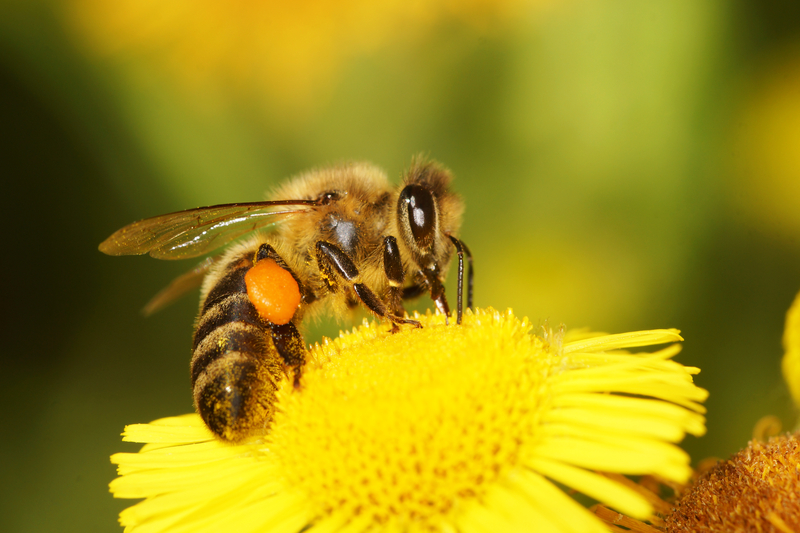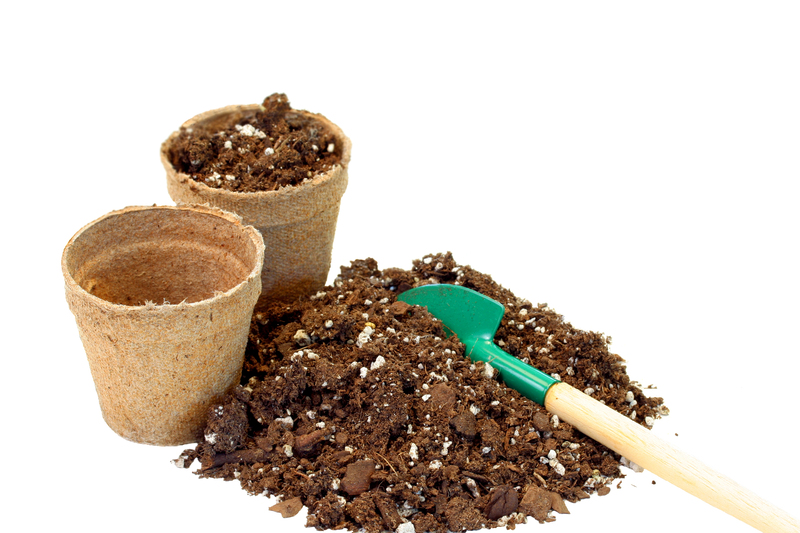Become a Weed-Free Hero with These 3 Tips
Posted on 28/05/2025
Become a Weed-Free Hero with These 3 Tips
Are you tired of battling unruly weeds in your garden or lawn? Do you aspire to achieve that pristine, beautiful landscape that makes your neighbors envious? If so, you're in the right place. In this comprehensive guide, we'll reveal three game-changing strategies that can help you become a Weed-Free Hero. Whether you call yourself a home gardener, a weekend warrior, or simply someone seeking a low-maintenance landscape, these tips are designed to empower you with expert knowledge and actionable solutions.
Why Is Weed Control So Important?
A weed-free yard isn't just about good looks. Weeds compete with your plants for water, nutrients, and sunlight. Over time, unchecked weeds can:
- Stifle the growth and health of your flowers, vegetables, and grass
- Harbor pests and diseases
- Reduce curb appeal and property value
- Cause allergies or skin irritation
If you want to maintain a healthy, vibrant landscape and truly embody the spirit of a weed-free champion, effective and sustainable weed management is essential.

The Secret Sauce: 3 Expert Tips to Achieve a Weed-Free Lawn & Garden
Now, let's dive into the heart of transforming your yard. Here are the top three weed-busting methods that every aspiring Weed-Free Hero should know.
Tip #1: Master Mulching -- Your First Line of Defense
One of the most effective, eco-friendly ways to suppress weeds is to use mulch. By applying a layer of organic or inorganic material over the soil, you can:
- Block sunlight, preventing weed seeds from sprouting
- Retain moisture and regulate soil temperature
- Stabilize soil, reducing erosion
- Add aesthetic value to your landscape
How to Mulch Like a Pro:
- Clear the area. Remove existing weeds from the soil surface.
- Choose the right mulch. Options include wood chips, bark, straw, compost, or landscaping fabric. Organic mulch breaks down over time, enriching the soil, while inorganic mulch like stones or rubber is longer-lasting but non-biodegradable.
- Apply a 2-4 inch layer. Cover the soil around plants but avoid crowding plant stems to prevent rot.
- Replenish as needed. Organic mulch may need to be topped up annually.
A thick mulch layer is your silent guardian against relentless weeds. By mastering mulching, you'll drastically reduce weed germination and moisture loss, saving you time and effort throughout the season.
Tip #2: Be Proactive with Pre-Emergent Weed Control
The most effective weed warriors attack problems before they start. That's where pre-emergent herbicides and preventive tactics come in. These methods stop weed seeds from germinating, eliminating problems at the source.
Key Steps to Effective Pre-Emergent Weed Management:- Timing is everything. Apply pre-emergent herbicide before weeds sprout -- typically in early spring and sometimes in fall, depending on your local weed calendar.
- Choose the right product. Not all pre-emergents are the same. Some target grassy weeds (like crabgrass), while others work on broadleaf invaders. Read labels carefully and select the one suitable for your garden or lawn.
- Apply evenly. Use a spreader or shaker to ensure uniform coverage.
- Water in the product. Most pre-emergent herbicides require activation by water. Lightly water your yard after application unless rain is in the forecast.
Bonus tip: Don't disturb the soil after applying pre-emergents. Digging or tilling can break the protective barrier and allow weeds to grow.
If you prefer chemical-free methods, explore natural options such as corn gluten meal, which can suppress weed seed germination--though results may vary and timing is still the key. By adding pre-emergent weed control to your toolkit, you'll solidify your status as a Weed-Free Hero.
Tip #3: Perfect the Art of Weed Removal
Despite all efforts, some pesky weeds will sneak through. The true weed-free champion knows how to deal with invaders quickly and effectively before they spread.
Tried-and-True Weed Removal Methods:- Hand-pulling: The gold standard for small weeds or sensitive areas. Use a weeding tool or your hands, and always pull from the base to extract the root. TIP: Try this after rainfall when the soil is moist--it makes the job easier!
- Hoeing: Best for larger beds. Use a sharp hoe to slice weeds just below the soil surface.
- Spot-treatment with herbicides: If hand-weeding isn't practical, selectively apply a post-emergent herbicide. Choose products that target the weed type while sparing nearby plants and follow safety instructions.
- Solarization: For persistent infestations, cover the soil with clear plastic during hot months to 'cook' weed seeds and roots using the sun's heat.
Don't wait for weeds to flower and seed! Frequent, early removal is the secret to keeping your garden or lawn under control. The more often you remove young weeds, the less work you'll have later.
Extra Tips for Becoming a "Weed-Free Hero"
While the above three strategies form the backbone of a weed-free garden, add these bonus techniques for even greater success:
- Maintain a healthy, dense lawn. Thick lawns outcompete weeds. Fertilize and overseed thin areas for better turf coverage.
- Landscape with weed-resistant plants. Ground covers, dense perennials, and shrubs can act as "living mulch," reducing open soil where weeds thrive.
- Water wisely. Drip irrigation delivers water directly to your plants' roots, depriving nearby weeds of moisture.
- Inspect new plants and soil. Always check transplants, compost, and soil amendments for weed seeds before adding to your landscape.
- Mulch paths and borders. Don't forget walkways--mulched paths are less likely to invite weeds.
An ounce of prevention is worth a pound of weed-pulling.
Frequently Asked Questions About Weed-Free Gardening
How often should I mulch to stay weed-free?
Apply organic mulch annually, or as needed. Inorganic mulches may last for several years but inspect for gaps or thin spots regularly.
Can I achieve a weed-free lawn without chemicals?
Absolutely! While herbicides can help, consistent mulching, manual removal, dense planting, and proper lawn care are highly effective organic options for most homeowners.
Why do weeds keep returning to my garden?
Weeds often return due to windblown seeds, dormant seed banks in soil, or gaps in mulch. Consistent removal, thick mulching, and proactive pre-emergent methods can break the cycle.
Is it ever OK to leave some weeds in my yard?
Some gardeners tolerate a few harmless weeds for pollinators, but for truly weed-free results (and curb appeal), regular removal is the best policy.

Become the Weed-Free Hero Your Neighborhood Needs!
Taking charge of your landscape and banishing weeds doesn't have to be overwhelming. With these three expert tips--masterful mulching, proactive pre-emergent control, and diligent weed removal--you can reclaim your lawn and garden from invasive plants. Combine these with the bonus tips for sustainable, long-lasting results.
Ready to show off a weed-free, lush landscape? Embrace these strategies and boldly become the Weed-Free Hero you've always dreamed of being. Your plants (and neighbors) will thank you!
Key Takeaways to Remember:
- Mulch is a weed's worst enemy--use it liberally.
- Stop weeds before they start with pre-emergent controls.
- Never hesitate to remove small weeds before they seed.
A weed-free garden is within your reach--practice these tips, and you'll enjoy a healthy, beautiful yard all season long!
Share Your Success Story
Have you become a Weed-Free Hero with these or other techniques? Share your experience and inspire others in the comments below!
Latest Posts
Container Gardening: A Fresh Approach to Urban Greenery
The Ultimate Toolbox for the Outdoor Gardener
Protecting Plants from the Cold Winter's Embrace

